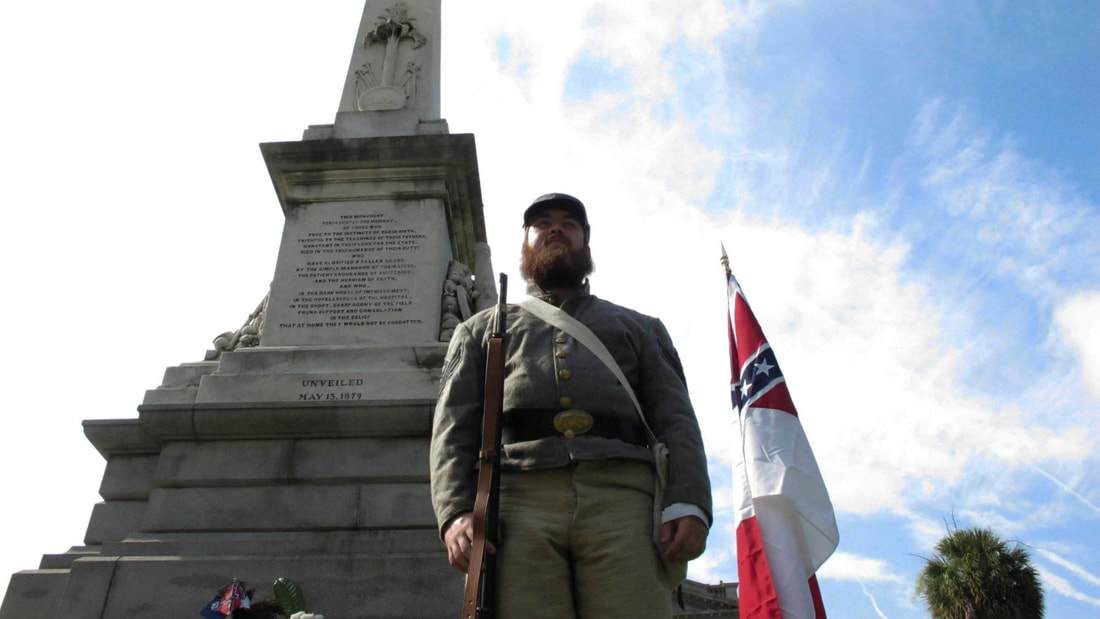|
We live in a surreal generation, where boys think they can become girls and girls think they can become boys. This generation has been deluged with the ‘equality’ gospel: everyone is equal and everyone can achieve at the same level. But equality is idealistic, not realistic. And our history is replete with failures as well as successes. We’ve had both heroes and commoners. Among the heroes of the past, my most admired are George Washington, Thomas Jefferson, and Robert E. Lee. Social activists often denounce this famous threesome as White supremacists, even “White Christian supremacists.” The anti-White slur has become pervasive while the anti-Christian slander is of recent origin, possibly being tested for its effectiveness. Monuments honoring these luminaries are being removed or contextualized to minimize their historical status. The nation is now enduring what Southerners endured with the maligning of Southern traditions Monument removals are sometimes classified as an act of social justice. Activists think they are capable of passing judgment on America and its past although their understanding of our history is limited. Their versions of history are sometimes related using ‘storytelling’, an archetypal narrative that doesn’t involve verified facts. ‘Storytelling’ is often simplistic but it bolsters social justice theories. Politicians also tend to view history simplistically, often as a collection of heroes and villains. Consider President Biden’s voting rights speech to students at Atlanta University, a cluster of Black colleges. Biden asked his audience: “Do you want to be on the side of Abraham Lincoln or Jefferson Davis ?” The way history is currently taught, these students would certainly be familiar with slavery and racism but might not recognize Jefferson Davis. Also, they assuredly have heard the “storybook” version of Lincoln freeing the slaves. But his Emancipation Proclamation freed no slaves. Slaves weren’t legally freed until the ratification of the 13th Amendment, almost nine months after Lincoln’s death. If Lincoln’s opinion of Blacks were judged by today’s standards, he would be considered a racist. Lincoln’s presidency has been significantly embroidered, giving him credit for freeing the slaves and saving the Union. As a result of these hyperbolic interpretations, Lincoln has been ranked as our greatest presidents, with George Washington following in second place. But a factual, unemotional assessment of history would make George Washington our best president. Placating minorities has not only involved defiling famous monuments but also modifying our traditions. Names of White heroes have been removed from our national holidays. Other than Christmas, Martin Luther King Jr Day is now the only national holiday honoring a person. Abraham Lincoln’s Birthday and George Washington’s Birthday were combined into the benign President’s Day. And Columbus Day became Indigenous Peoples Day. President Biden recently added Juneteenth as a national holiday. But what happened on that date that was special enough to justify the creation of a national holiday ? On June 19th 1865, a Union officer informed slaves in Galveston, Texas that they had been freed. Only in this politicized era could such an unpretentious event become a national holiday. Juneteenth is the first national holiday created since Martin Luther King Jr. Day was added. As we can only have a limited number of national holidays, many prestigious heroes were honored with monuments and other forms of esteem. This group of luminaries includes Robert E. Lee. Although he led Southern forces in the War Between the States, Lee later attained national acclaim. General Lee is admired not only for who he was but for what he symbolizes; a loyal citizen and a devout Christian. During Thomas Jefferson’s first term as president, a political enemy implied an affair between Jefferson and one of his female slaves. This affair was based on scuttlebutt circulating in Jefferson’s Virginia county while he was still a fairly young widower. The story was short-lived and soon fell into obscurity where it remained for over a century. It was recently revived and accepted as credible by the Thomas Jefferson Foundation. But the Thomas Jefferson Heritage Society reexamined the accumulated evidence and refuted the claim. George Washington, Thomas Jefferson, and Robert E. Lee should be our nation’s most respected figures. But social activists associate them with the institution of slavery and equate their monuments and memorials with White supremacy. So those of us who hold these men in esteem must strive to protect their reputations as well as their monuments and memorials.
0 Comments
Leave a Reply. |
AuthorGail Jarvis is a Georgia-based free-lance writer. He attended the University of Alabama and has a degree from Birmingham Southern College. His writing is influenced by years of witnessing how versions of news and history were distorted for political reasons. Mr. Jarvis is a member of the Society of Independent Southern Historians and his articles have appeared on various websites, magazines, and publications for several organizations. He lives in Coastal Georgia. Archives
June 2023
|

